Blue light and its impact on sleep

While essential for our daytime functioning, exposure to blue light at night may disrupt our natural sleep patterns.
Understanding and managing blue light exposure is important for achieving better rest. In this article, we'll delve into the connection between our sleep-wake cycles and the pervasive influence of blue light. We'll summarise its possible impact and suggest effective ways to promote a more restful night's slumber.
What is blue light?
Blue light is a type of visible light with a short wavelength and high energy. Digital screens, LED lights, the sun, and other sources produce varying levels. It plays a pivotal role in regulating our circadian rhythm in charge of sleep and wakefulness.
What can blue light do to your sleep?
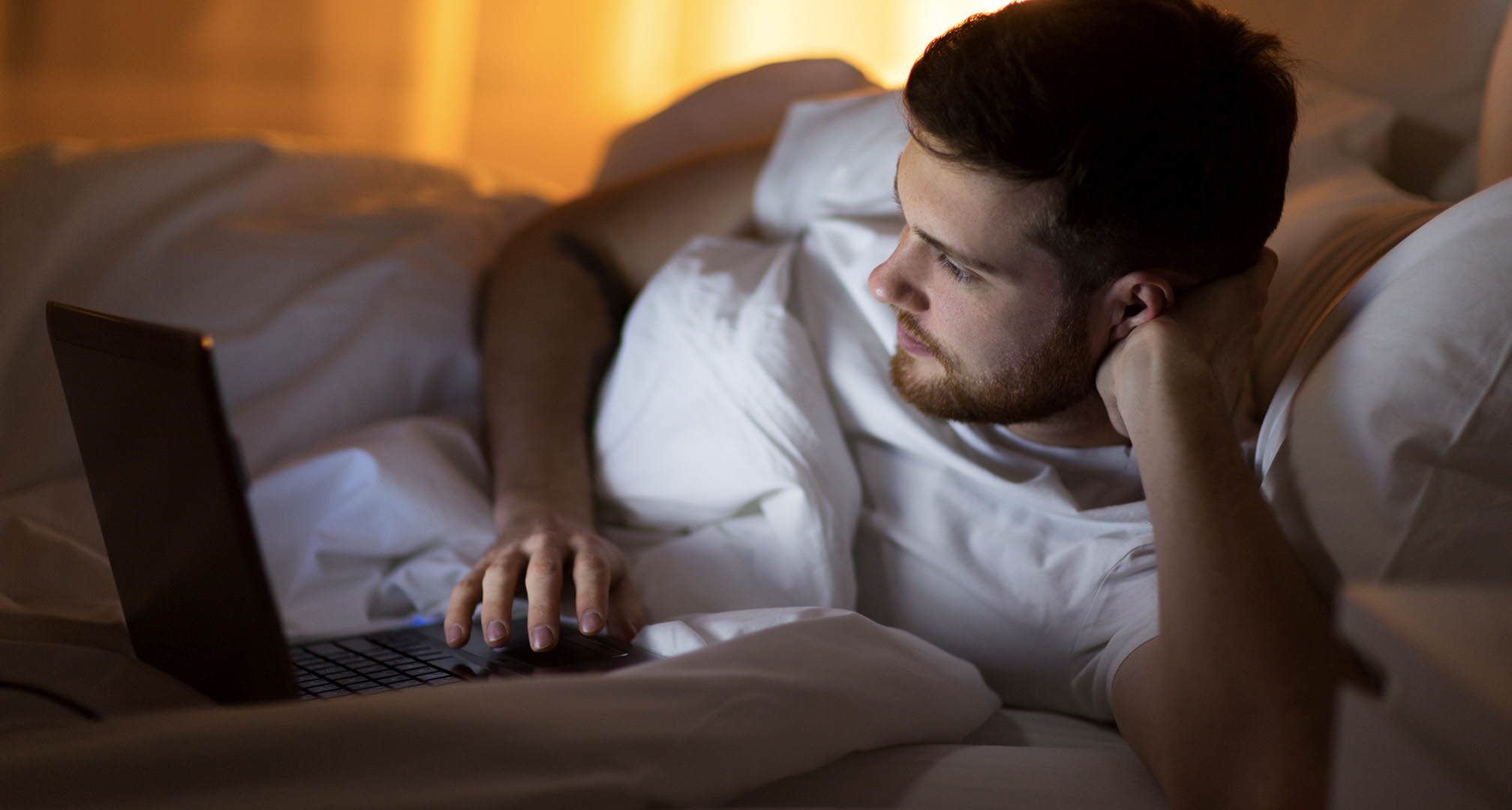
Prolonged exposure to blue light at night can make it harder to fall asleep. It can also reduce sleep quality, causing more fragmented and less restorative rest.1
This is because blue light suppresses the production of melatonin, a hormone that regulates sleep-wake cycles. Exposure to blue light during the day signals the body to wake and stay alert.
Blue light's impact on sleep in children
Blue light affects adults and children differently. Research has found that even minimal exposure to light before bed can interfere with young children’s sleep. This includes not only light from digital devices, but also any type of light in the room.
As the lighting environment significantly influences circadian timing systems in children, researchers suggest the hour before bedtime is a crucial time to pay attention to light exposure.2
Pro tip: Experiment with technology-free zones in certain areas of your home, such as a bedroom. This simple trick might encourage more mindful screen use before bedtime.
Sources of blue light
Sunlight is the primary source of natural blue light, but artificial sources such as digital devices emit significant amounts. Common artificial sources include:
- Fluorescent lights
- LED lights and TVs
- Computer monitors and laptops
- Smartphones
- Tablet screens
- Gaming consoles with screens
- E-readers
How to prevent blue light hurting your sleep
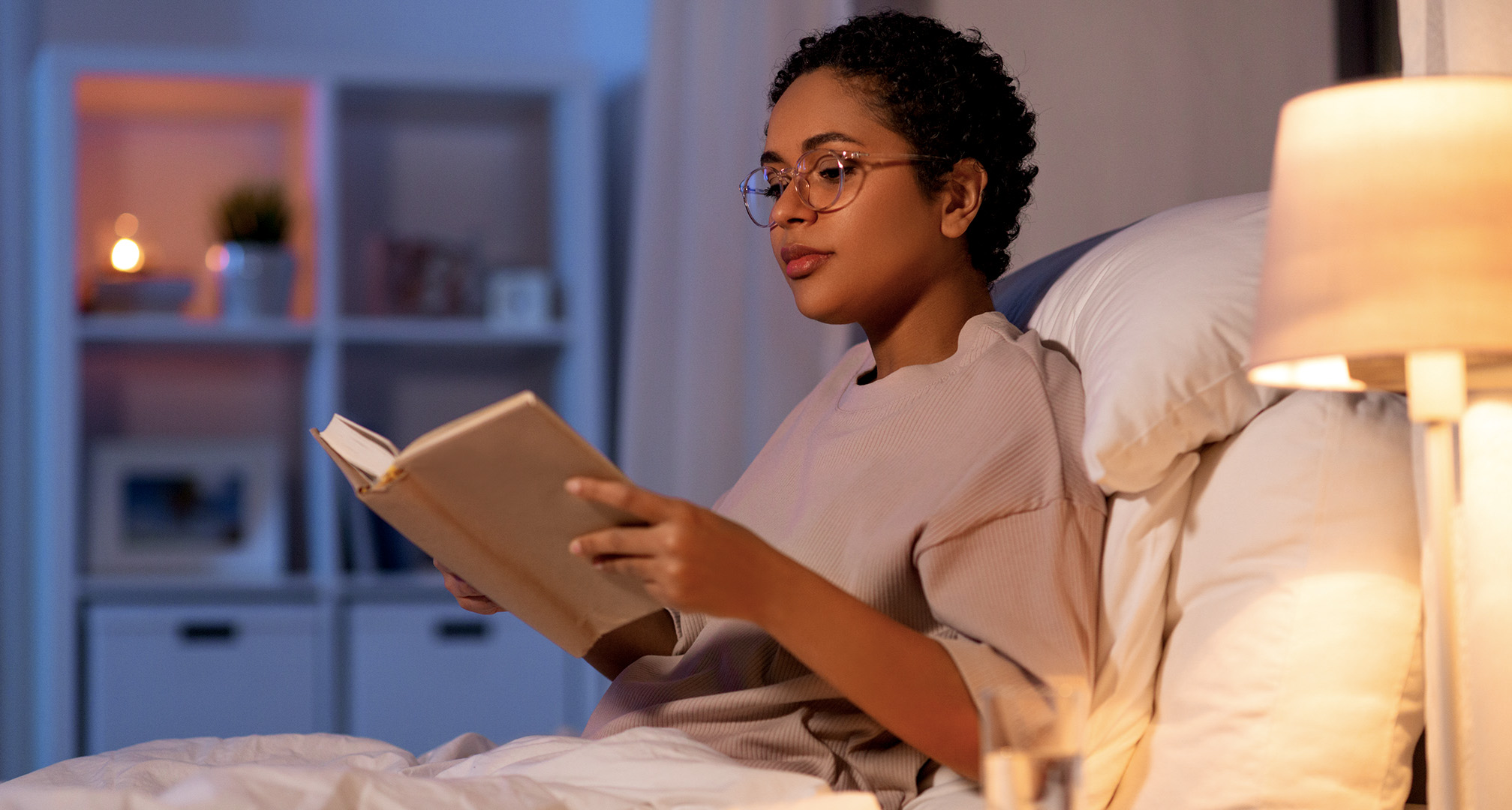
Here are some effective strategies to minimise the potential negative impact of blue light on your sleep.
Limit screen time before bed
Exposure to screens before bedtime can disrupt your body's natural sleep-wake cycle due to the high levels of blue light emitted. Set a technology curfew at least two hours before bedtime.3
Consider blue light blocking glasses
Blue light glasses are designed to filter out a portion of blue light, potentially minimising its negative impact on melatonin production. They may be useful if you have a job that involves prolonged screen time or if you frequently use devices or are exposed to artificial light in the evening.
And while research is still ongoing, it's suggested that wearing blue light glasses could help combat the symptoms of digital eye strain too.
Looking to increase your protection from blue light?
Browse high-quality PC glasses at Lentiamo.
Activate blue light filters
Blue light filters on devices help reduce the amount of blue light that is produced, making it easier for your body to produce melatonin, the sleep-inducing hormone.
Enable built-in filters on your smartphone, tablet, and computer, especially during the evening hours. You can also explore third-party apps for additional customisation, including dark modes.
Adjust lighting
Proper lighting in the evening helps signal to your body that it's time to wind down and prepare for sleep.
Opt for warm-coloured, dim indoor lights during the evening to create a sleep-friendly environment. Consider using smart bulbs with adjustable colour temperature to mimic the natural changes in daylight.
The information provided in this article serves as an informational guide about blue light and sleep. It is not to be construed as medical advice, professional medical recommendations, or diagnosis. Always consult your health care professional for health information based on your specific needs.
Closing thoughts from Lentiamo
Blue light from screens and artificial lighting can be hard to avoid. To foster better sleep, we can adopt one or more helpful practices like limiting screen time before bed, utilising blue light filters, or wearing blue light glasses.
Navigating the digital age calls for a balanced approach to technology while prioritising quality, restful sleep.
Read more about blue light
- Best blue light glasses: Here's how to choose
- Do blue light glasses work? 8 facts at a glance
- Everything about digital eyestrain
Sources
1.National Library of Medicine, Evening use of light-emitting eReaders negatively affects sleep, circadian timing, and next-morning alertness
2. National Library of Medicine, High sensitivity of melatonin suppression response to evening light in preschool-aged children
3. Harvard Health Publishing, Blue light has a dark side


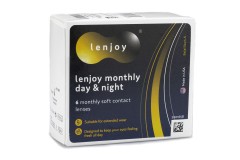
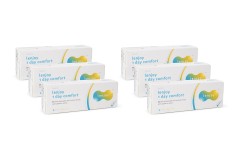


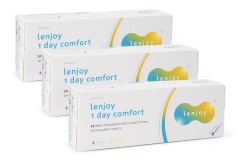
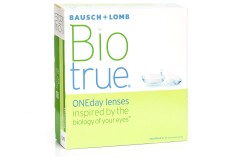
Comments